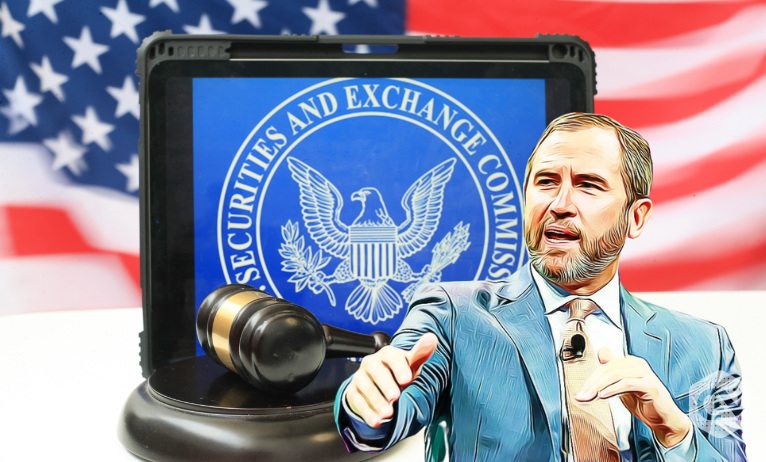Ripple’s Persistent Battle with the SEC: A Closer Look
Ripple has been on a rollercoaster with the Securities and Exchange Commission (SEC), encountering numerous challenges yet consistently emerging more resilient. The CEO of Ripple, Brad Garlinghouse, has called attention to the dire need for transparent and consistent regulations within the crypto landscape. He points out a glaring inconsistency between the SEC Chair Gary Gensler’s statements and the actual actions of the agency, highlighting this mismatch as a stumbling block to the growth and innovation of the crypto industry.
Ripple CEO’s Appeal
The narrative took a fresh turn when the SEC disclosed its intentions to revise its lawsuit against another major crypto entity, binance. This development might bring temporary solace to the digital assets in question. Ripple and others in its orbit have previously suffered from the ambiguous regulatory environment, facing intense scrutiny and even removal from trading platforms.
Garlinghouse made his stance crystal clear with a punchy tweet, slamming the SEC for what he describes as hypocrisy. He criticizes the SEC’s unclear application of its own rules, which he believes fosters confusion within the industry about regulatory expectations. According to him, this inconsistency might stem from a political agenda or a litigious strategy that doesn’t quite align with a fair interpretation of the law.
Industry Voices Join the Fray
Echoing Garlinghouse’s sentiments, lawyer Jonh Deaton has also thrown his weight behind calls for SEC Chair Gary Gensler to step down. Deaton, representing a vocal supporter of Ripple, took legal measures against the SEC, including filing a Motion to Intervene on behalf of retail investors, alleging that Gensler and the SEC have sidestepped precedence established over decades.
In a statement that aligns with the opinions of many within the crypto community, Stuart Alderoty, XRP’s Chief Legal Representative, criticized the SEC’s regulatory approach. He highlighted a recent episode where the SEC backpedaled on its classification of certain tokens as securities in the binance case, a move that starkly contrasts its stance in the litigation against Coinbase. Alderoty criticizes this regulatory inconsistency, framing it as counterproductive.
Ripple’s Legal Tug of War with the SEC
The heart of Ripple’s clash with the SEC lies in the accusation that Ripple raised $1.3 billion through the sale of XRP in what the SEC deems an unregistered securities offering. However, Ripple scored a partial victory when Judge Analisa Torres found that some sales of XRP did not breach securities law due to their nature, separating them from other sales to institutional investors which were deemed securities.
The ongoing saga between Ripple and the SEC underscores a broader contention over the regulation of cryptocurrencies. Ripple’s journey through legal challenges and its vehement call for regulatory clarity is emblematic of the crypto industry’s current state – yearning for a rulebook that matches its pace of innovation and growth.
As the landscape of digital currencies continues to evolve, the discourse surrounding its regulation does too. Industry participants and observers alike await a resolution that could set meaningful precedents for the future of cryptocurrency regulation. While the battle is far from over, the dialogue sparked by Ripple and its supporters is sure to influence the conversation for years to come.
Moreover, the situation with Ripple and the SEC is more than a legal skirmish; it’s a critical chapter in the broader narrative of crypto regulation. It serves as a testament to the crypto industry’s resilience and its relentless quest for a regulatory environment that fosters innovation without stifling it.
